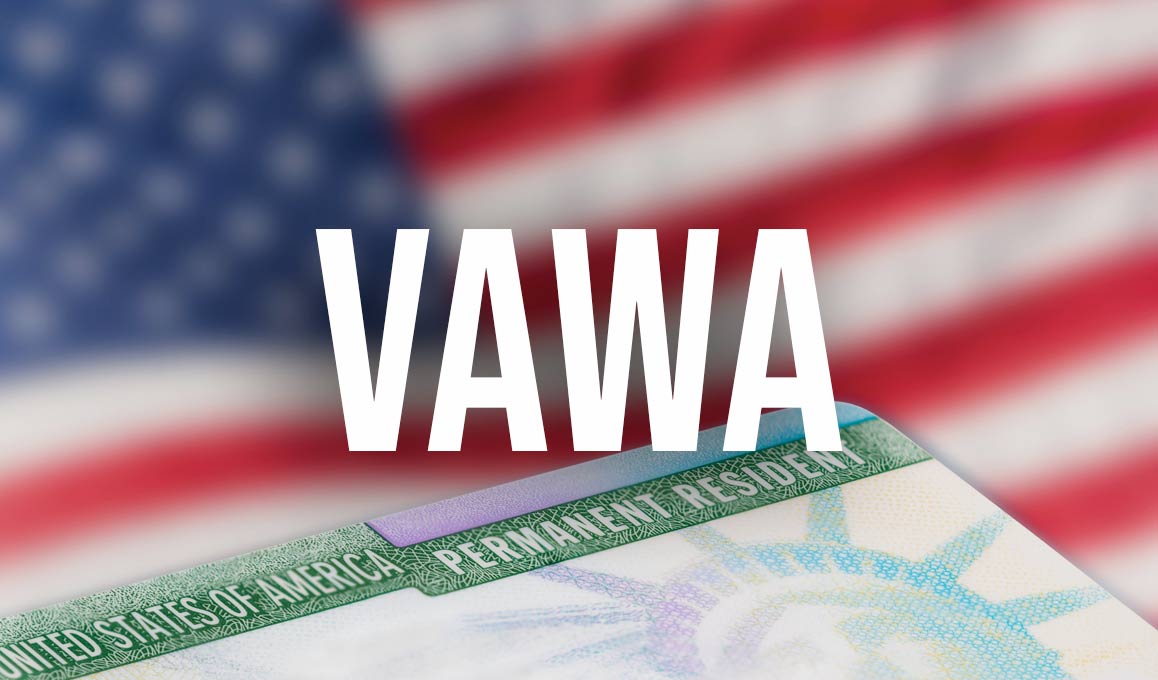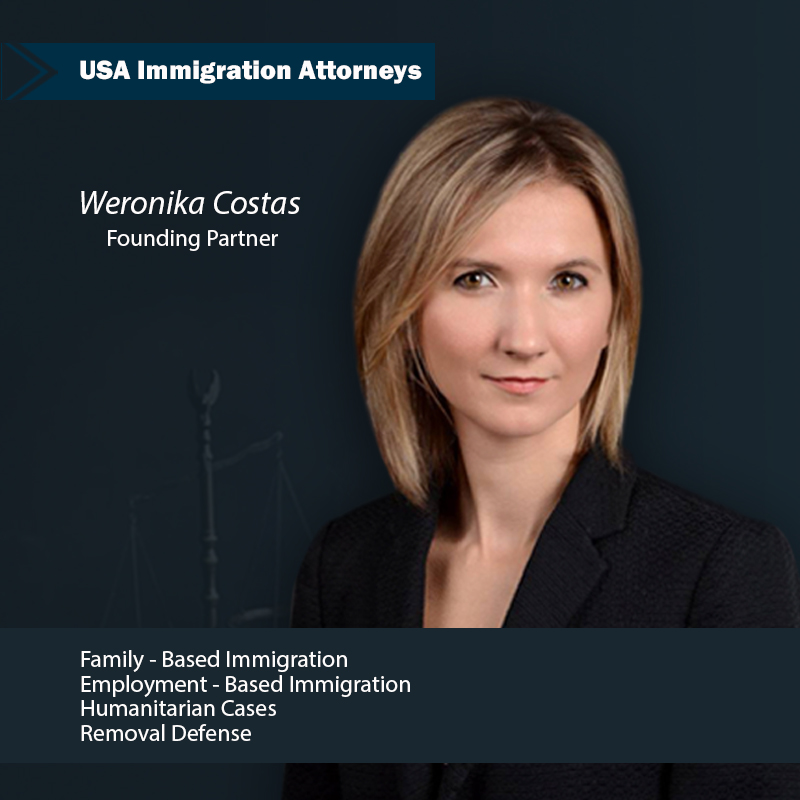The Violence Against Women Act (VAWA) is a landmark piece of legislation in the U.S., providing vital protections for victims of domestic violence, sexual assault, and other forms of abuse. One of its lesser-known provisions allows certain abused individuals, who are not citizens or permanent residents, to obtain lawful permanent residency without the sponsorship of their abuser. If you or someone you know is considering applying for a green card through VAWA, this guide will provide an overview of the process.
The journey to find safety and security in a new land can be daunting, especially for those escaping the dark shadows of domestic violence. The U.S.’s Violence Against Women Act (VAWA) was created with a deep understanding of this struggle, offering a lifeline to victims seeking a new start. If you, or someone dear to you, is thinking of treading this path, let’s walk through it together with compassion and clarity.
1. Am I Eligible?
The heart of VAWA is its inclusivity. It’s there for you if:
- Spouse: You’ve faced abuse from a spouse who is a U.S. citizen or permanent resident.
- Child: You’re a young person under 21 (and unmarried) who’s suffered at the hands of a U.S. citizen or permanent resident parent.
- Parent: Your child has been hurt by your U.S. citizen or permanent resident spouse.
- Self-Petitioning Parent: You’re a parent who’s been abused by your U.S. citizen child.
Beyond these relationships, to reach out for VAWA’s helping hand, you need to:
- Call the U.S. your home.
- Have shared a home with your abuser.
- Show that your marriage (for spouses) was genuine and not just on paper.
- Have faced substantial abuse or extreme cruelty.
- Carry a history of good moral character.
2. Gathering Your Story(Documents Needed)
Documentation is vital to establish eligibility. While exact documents can vary based on individual circumstances, typically, you might need:
Personal declaration: A detailed account of your relationship with the abuser, instances of abuse, and other relevant information.
Proof of relationship: Marriage certificate (for spouses), birth certificates (for children or parents), or other evidence.
Proof of abuser’s immigration status: U.S. passport, birth certificate, or green card photocopy.
Evidence of cohabitation: Lease agreements, utility bills, or mail with both names and address.
Evidence of abuse: Police reports, restraining orders, medical records, psychological evaluations, photographs of injuries, or affidavits from witnesses.
Proof of your good moral character: Police clearances, affidavits from people who know you, or records of volunteer work.
3. Application Process
Step 1: File Form I-360
Start by submitting the “Petition for Amerasian, Widow(er), or Special Immigrant” (Form I-360) to U.S. Citizenship and Immigration Services (USCIS). This form allows you to self-petition under VAWA. There’s no fee for VAWA-related I-360 forms.
Step 2: Wait for I-360 Decision
USCIS will review your petition and either approve or deny it. If denied, they will provide reasons for the decision. If approved, you’re a step closer to getting your green card.
Step 3: File Form I-485
If your I-360 is approved and an immigrant visa is immediately available, you can file “Application to Register Permanent Residence or Adjust Status” (Form I-485). This is the form that will grant you a green card upon approval. If a visa is not immediately available, you will need to wait until one becomes available based on the visa bulletin.
4. Costs
While sharing your story through the I-360 is free, the I-485 comes with a fee, primarily based on age and filing category.
Costs: $1,140 for those aged between 14 and 78, with an extra $85 for biometrics. It’s always a good idea to check for the latest numbers or ask someone knowledgeable. Always check the USCIS website or consult with an attorney for the most current fee structure.
5. Wait Times
Hope is a journey. After sharing your story, it might take a few months or even more than a year for it to be fully heard and acknowledged. Remember, every journey is unique, and wait times can differ.
The processing time for a VAWA I-360 application depends on the caseload of the USCIS office and the specifics of your case. Once the I-360 is approved and an immigrant visa is available, the I-485 processing wait times can fluctuate.
6. A Few Gentle Reminders
- Consult with an attorney: Navigating the VAWA process can be complex. A compassionate immigration attorney can be your guiding star.
- Safety First: Maintaining confidentiality is a priority, USCIS is prohibited from disclosing any information about the person who files a VAWA self-petition to the abuser. Ensure you provide a safe mailing address when filing.
- Stay Informed and Hopeful: Rules evolve, so keep an ear to the ground. And always believe in a brighter tomorrow. Immigration rules and processes can change. Regularly check the USCIS website or speak with a professional to stay informed.
VAWA provides a crucial lifeline for those trapped in abusive situations offering them a path to independence and safety. Remember, VAWA exists because society believes in giving everyone a shot at peace, safety, and happiness. Embrace this opportunity with hope, and step forward into a more secure and brighter future.
If you believe you qualify, don’t hesitate to contact us at the Costas Network to seek the resources and support you deserve to embark on this journey towards a brighter, more secure future.
Conclusion
If you’re reading this, teetering on the precipice of choice, heart heavy with hesitation, please know you’re not alone. The path ahead might seem fraught with uncertainty, but remember that VAWA was designed with empathy, understanding, and a deep recognition of the courage it takes to even contemplate this step. You have already shown immense strength in navigating your journey so far, and while the idea of diving into the unknown can be intimidating, consider what lies on the other side: a chance at peace, security, and a life where your well-being is prioritized.
Each person’s story is unique, and it’s okay to feel apprehensive about sharing it. But within your story lies the power to transform not only your future but also to illuminate a path for others in similar situations. While it’s true that no process is without its challenges, let the prospect of a safer, brighter tomorrow be the beacon that guides you forward.
Taking the leap by applying for a green card via VAWA might feel like a risk, but sometimes, it’s within these risks that we find our most profound transformations. And always remember, you’re not navigating this journey alone. There are countless hands ready to guide and support you, from attorneys to counselors and communities that have walked this path before.
In the end, your safety, peace, and happiness are worth every ounce of courage you muster. Let your hope overshadow your fear, and let that first brave step pave the way for a brighter tomorrow. All of us here at Costas Network believe in you and are here for you.



